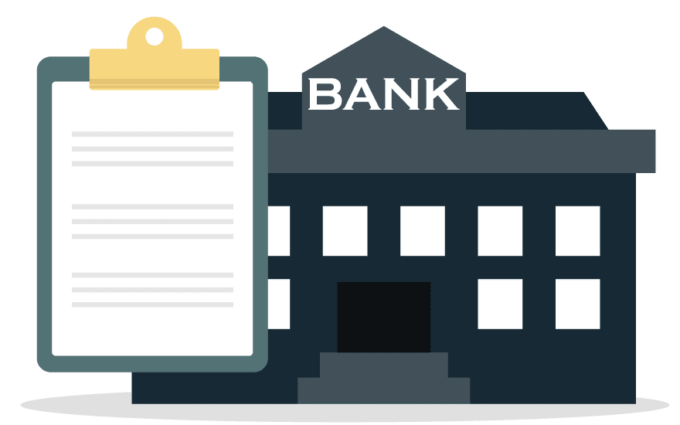In today’s competitive banking industry, professionals are constantly seeking ways to enhance their skills and stand out from the crowd.
One effective way to achieve this is through banking certifications. These credentials not only validate expertise but also open doors to new career opportunities.
This article explores the significance of banking certifications, the advantages they offer, and the top ones in the industry.
Discover how obtaining these certifications can lead to professional growth and pave the way to success.
The Importance of Banking Certifications

Banking certifications are crucial for professionals seeking career advancement and recognition in the industry. They offer a range of career benefits, providing individuals with enhanced knowledge and skills that are highly valued in the banking sector.
By obtaining industry-recognized certifications, professionals demonstrate their commitment to excellence and their ability to meet the rigorous standards set by the industry. They also serve as a validation of an individual’s expertise and competence, increasing their credibility and marketability.
Furthermore, they often open doors to new opportunities and higher-level positions within organizations. They provide professionals with a competitive edge, distinguishing them from their peers and increasing their chances of career success.
In an industry as competitive as banking, where knowledge and expertise are highly valued, obtaining recognized certifications is essential for long-term professional growth and recognition.
Advantages of Obtaining Banking Certifications
Obtaining banking certifications offers professionals a multitude of advantages that can propel their careers to new heights.
One of the main advantages is the increase in career opportunities that come with them. Banking certifications demonstrate a high level of expertise and competency in specific areas of banking, making professionals more desirable to employers. This opens up doors to higher-level positions, promotions, and increased responsibilities within the industry.
Additionally, they provide industry recognition. They validate a professional’s knowledge and skills, giving them credibility and enhancing their reputation in the banking community. This recognition can lead to greater networking opportunities, access to exclusive job postings, and the ability to work on high-profile projects.
Top Banking Certifications in the Industry

The industry offers a range of prestigious certifications that can significantly enhance a professional’s banking career. Among the top banking certifications in the industry are the Certified Financial Planner (CFP), Chartered Financial Analyst (CFA), and Certified Banking & Credit Analyst (CBCA) credentials.
They not only validate a professional’s expertise and knowledge in the banking field but also provide them with a competitive edge in the job market. Additionally, banking certifications often come with a higher salary potential, as they demonstrate an individual’s commitment to professional development and competence.
Furthermore, they hold global recognition, allowing professionals to expand their career opportunities internationally. With the constantly evolving banking industry, obtaining these top certifications can open doors to lucrative job prospects and advancement in the field.
Steps to Earn Banking Certifications
To embark on the journey of earning banking certifications, professionals must actively pursue the required qualifications and diligently prepare for the rigorous examinations. While the specific steps may vary depending on the certification, there are general guidelines that can help individuals achieve success.
First and foremost, it is important to research the different ones available in the banking industry and determine which one aligns with their career goals. Once a certification is selected, professionals should assess the cost involved, including registration fees, study materials, and examination fees.
Additionally, individuals must consider the time commitment required to study and prepare for the certification exams. This may involve attending training programs, self-study, and practice exams.
How Banking Certifications Boost Professional Growth

They significantly enhance professional growth by equipping individuals with specialized knowledge and expertise. They open up a wide range of career opportunities in the banking industry.
With the rapid changes in the financial sector, employers are increasingly seeking candidates who possess the necessary skills and qualifications to navigate this dynamic landscape.
Banking certifications provide professionals with a competitive edge, as they demonstrate a commitment to continuous learning and professional development.
Furthermore, they offer networking benefits that can further boost professional growth. Through them, individuals have the opportunity to connect with industry experts and peers, which can lead to valuable collaborations and mentorship opportunities. Networking within the banking industry can provide insights into industry trends, job openings, and potential career advancement opportunities.
Frequently Asked Questions
What Is the Cost Associated With Obtaining Banking Certifications?
The cost implications of obtaining banking certifications can vary depending on the specific certification program and the level of experience required. However, the financial benefits that come with them often outweigh the initial investment.
Are There Any Prerequisites or Requirements to Be Eligible?
Prerequisites and eligibility requirements for banking certifications vary depending on the specific certification program. Generally, applicants must meet certain educational and professional experience criteria, and undergo an application process that includes exams and documentation submission.
How Long Does It Take to Complete the Process?

The time commitment required to earn banking certifications varies depending on the specific certification and individual’s study habits. Study materials are readily available through various sources, such as online platforms and professional organizations, to aid in this process.
Can Banking Certifications Be Earned Online or Do They Require In-Person Attendance?
Banking certifications can be earned both online and through in-person attendance. While in-person programs offer networking opportunities, online options provide flexibility and convenience. Earning them online can enhance professional success by enabling individuals to balance work and education.
Do Banking Certifications Expire? if So, How Often Do They Need to Be Renewed?
Banking certifications do expire and need to be renewed periodically. The frequency of renewal depends on the specific certification and the requirements set by the certifying body. It is important for professionals to stay updated and maintain their credentials.











